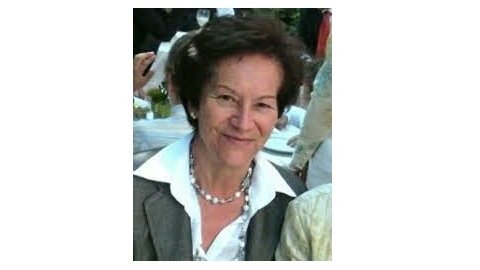Professor Rosa Araceli Santiago passes away
Rosa Araceli Santiago Álvarez, Emeritus Professor of Greek Philology in the Department of Ancient and Middle Age Studies, passed away on 21 July 2023. The University expresses its deepest condolences to all the people who knew and appreciated her and shares the sadness for the loss of such a valued member of its community.

Marta Oller, lecturer in the Department of Antiquity, dedicates the following words to Professor Santiago:
A student of the University of Salamanca, Rosa Araceli Santiago obtained her PhD degree in 1972 with a thesis on Mycenaean Greek. The choice of this subject must be attributed to her teacher, Professor Martín S. Ruipérez, an eminent classical philologist, for whom Santiago always professed a deep admiration and affection in gratitude for the quality of the teaching she received and for the humanity of the way he treated her.
At the beginning of the 1960s, after winning a chair in secondary education, Professor Santiago settled in Barcelona, where she taught at the Institut Joan d'Àustria for a period of more than ten years. She would always keep very fond memories of those years and would speak of them with pride and satisfaction, not only for the professional enrichment they represented for her, but also for the many personal connections she made, some of them decisive in her life.
After a couple of years as an assistant lecturer at the University of Barcelona, she began to teach Ancient Greek at the UAB in the 1972/73 academic year. It was here that Santiago developed the bulk of her professional career, forging a curriculum as a researcher and teacher recognised and admired by colleagues and students everywhere. Professor Santiago excelled equally in research, directing numerous research projects and publishing studies of great relevance in her field, as she did in teaching, an activity she loved above all else and which she carried out with total commitment and generosity.
Those who have had the good fortune to have had her as a lecturer and guide remember the passion with which she approached the reading and commentary of ancient Greek texts - the Homeric poems, Iliad and Odyssey, the Greek tragedians, the Attic prose of Xenophon, etc. - with which she read and commented on them, the inexhaustible search for rigour and precision in translation, the clarity of exposition even in the most difficult aspects, and above all her extraordinary ability to encourage students to go beyond commonplaces and common opinions in order to find a genuine and solidly based response to the great challenges posed by philological science.
At a time when artificial intelligence is gaining ground, Professor Santiago's legacy is a cry for the vindication of human intelligence; one which reasons, thinks and argues. But also one which is passionate in its search when necessary, and which is always concerned that its own advances should never be to the detriment of common good, but rather contribute to it. May she rest in peace, our dear teacher and friend of many people here at the Faculty of Arts & Humanities.